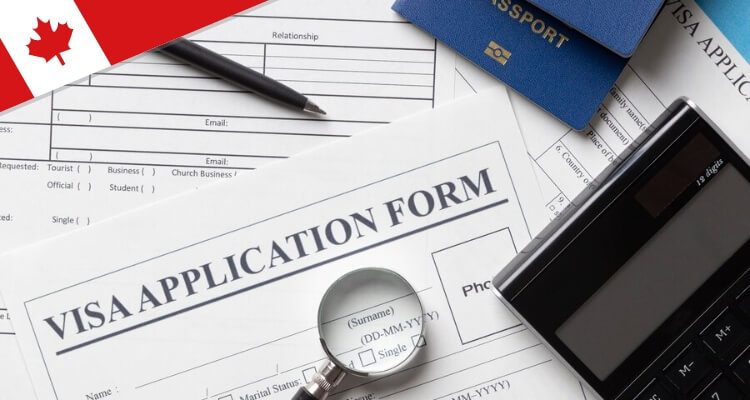You’re excited about attending a bustling business conference in Canada, networking with industry experts, and soaking in the vibrant culture. But amidst your anticipation, a question arises: “Can a Person Who Has a Conference Visa Spend up to Two Years in Canada?”
The answer is no. Typically, conference visas are short-term permits Specified for event participation, not prolonged stays. Extending your time in Canada beyond the conference duration requires exploring different visa options or permits.
You need not worry! The purpose of this article is to provide insights and guidance that will ensure your journey to Canada is hassle-free and smooth. Come along with me as we guide the maze of visa regulations together over a cup of coffee.
What Can You Do With Conference Visa?
A conference visa allows you to attend events, seminars, and workshops relevant to your field. It provides an opportunity to expand your knowledge, connect with professionals, and explore new ideas.
You can also participate in discussions, panels, and hands-on sessions that enrich your expertise. These experiences enhance your skills and offer insights into industry trends. With a conference visa, you can attend upcoming international conferences in Canada and network with global experts.
These events create valuable connections that could lead to future collaborations or job opportunities. Additionally, exploring a new country adds cultural experiences that broaden your perspective. Attending multiple sessions during the event helps you stay updated on the latest advancements.
How Long Can You Stay in Canada with A Conference Visa?
You can stay in Canada with a conference visa, but the length of stay depends on several factors. Typically, visitors are allowed to stay for up to six months, but the exact duration varies. Immigration officials determine the length of your stay upon arrival at the border. Below are the key factors that influence how long you can stay.
Length of the Conference
The visa duration aligns with the official dates of the event. Additional days may be granted for travel and preparation. Participants can request extra time for post-conference activities if needed. Staying beyond the allotted period requires prior approval.
Type of Visa Issued
Different visas come with varying lengths of stay based on your purpose. A visitor visa for conferences usually allows a temporary stay. Ensure your visa type matches your planned activities and travel duration. Overstaying can lead to future travel restrictions.
Officer’s Decision at the Port of Entry
Immigration officers have the final say regarding your stay duration. They may ask questions about your itinerary and return plans. Clear answers increase the likelihood of getting the desired stay period. Always carry supporting documents to justify your requested stay.
Extending Your Stay
You can apply for an extension before your initial visa expires. Submit the request well in advance to avoid issues. Valid reasons, such as additional meetings or networking, support your extension request. Approval ensures you remain in Canada legally without disruptions.
Compliance With Visa Conditions
You must follow the rules outlined in your visa, including leaving before it expires. Engaging in unauthorized activities, like work, can lead to penalties. Attending only the events specified in your visa application ensures compliance. Following the conditions helps avoid complications for future travel plans.
Purpose and Travel History
A clear purpose, like attending a conference, supports a smooth visa process and stay approval. A good travel history can positively influence the officer’s decision on your stay duration for Canadian conference visa approval. Negative records, such as past overstays, may result in stricter conditions. Transparent communication about your plans builds trust with immigration officials.
Can a Person Who Has a Conference Visa Spend Up to Two Years in Canada?
No, a person who has a conference visa cannot stay in Canada for up to two years. Conference visas are specifically designed for short-term stays that typically cover the duration of the event plus a brief period for travel. To extend a stay significantly beyond the conference itself, alternative visa types or permits would need to be sought.
Visa Type
Conference visas are issued for the specific purpose of attending events. These visas do not permit longer stays without adjustment. Exploring other visa options is necessary for extended stays.
This visa type is strictly for participation in conferences and cannot be adjusted on its own for longer durations. Applicants must apply for a different type of visa if they wish to remain in Canada for reasons other than attending a conference.
Purpose of Visit
The intent behind a conference visa is attendance at a specific event, not long-term residence. Immigration officials grant this visa based on your short-term plans, which are outlined in your application. Staying longer than the conference can be considered a violation of visa conditions.
If the purpose of your stay changes, it’s crucial to communicate this to Canadian immigration authorities and apply for an appropriate visa. Misrepresenting your stay’s intent can lead to penalties or a ban on future entries to Canada.
Canadian Immigration Policy
Canadian immigration laws are stringent regarding the stay limits on different visa categories. Conference visas are governed by rules that ensure visitors leave promptly after their stated purpose is concluded. Understanding these policies can help avoid legal issues.
To comply with Canadian law, one must adhere to the conditions of the visa issued. Extending a stay often requires a new visa application, supported by different reasons for the extended duration.
Application for Extension
Applying for an extension involves demonstrating a new, legitimate reason for staying longer in Canada. This process requires detailed documentation and is subject to approval by immigration authorities. It’s not guaranteed and should be planned accordingly.
The extension application should clearly state why staying beyond the initial visa term is necessary. This could be due to unforeseen circumstances or new professional obligations requiring a longer stay.
Impact of Overstaying
Overstaying a conference visa can have severe consequences for your ability to return to Canada in the future. It’s important to leave before your visa expires unless you have successfully received an extension. Ignoring this can lead to deportation or an entry ban.
Avoid complications by monitoring your visa expiration closely and taking prompt action if you wish to extend your stay. Consulting with an immigration lawyer can provide guidance on the best steps to take.
Compliance and Documentation
Keeping thorough records of your entry and intended departure dates is crucial for compliance with Canadian visa rules. Accurate documentation supports any applications for extensions and illustrates compliance with immigration laws. Keeping immigration officials informed of your plans can help facilitate any necessary adjustments to your visa status.
Documentation should be kept up-to-date and ready to present to Canadian authorities upon request. This helps ensure that all interactions with immigration services go smoothly and without misunderstanding.
Can You Extend Your Stay Beyond the Visa Limit?
You’ve got your conference visa sorted out, but now you wonder whether you can stay a bit longer in Canada. Here’s what we need to know:
- Extending your stay beyond the limit of your conference visa may be possible, but it’s not guaranteed.
- You’ll need to apply for an extension before your current visa expires. Waiting until afterward could lead to complications.
- Provide a valid reason for your extension, such as additional business meetings or exploring the country as a tourist.
- Your extension request will be evaluated by Canadian immigration authorities. They’ll consider factors like your intention to leave Canada after the extended period and whether you can financially support yourself.
- Be prepared to provide supporting documents, such as a detailed itinerary, proof of funds, and a letter explaining your reasons for wanting to extend your stay.
- Approval of your extension is not guaranteed, so it’s essential to plan accordingly and have a backup plan in case your request is denied.
What Are the Requirements for Extending a Conference Visa?
Extending a conference visa requires valid reasons and supporting documents to demonstrate the necessity of a longer stay. Planning ahead and following immigration procedures ensures a smooth extension process. Below are key requirements and factors to consider when applying for a visa extension.
Valid Reason for Extension
Your reason for staying longer must align with immigration policies. Unforeseen events like additional meetings or professional obligations may qualify. Clear documentation supporting your request strengthens the application. Officials assess if your reason justifies the extra time requested.
Sufficient Financial Resources
You must show proof of funds to cover your extended stay without working in Canada. Bank statements or sponsorship letters are essential documents. Immigration officials require assurance that you won’t depend on unauthorized employment. Financial stability is a key factor for approval.
Proof of Accommodation
You need confirmed accommodation arrangements covering the entire extended period. Hotel bookings or rental agreements can demonstrate where you will stay. Immigration officials expect clarity about your living arrangements during the extended stay. Inadequate proof may lead to rejection of your request.
Compliance With Immigration Rules
You must follow all visa conditions during your stay, including the activities permitted under your visa. Demonstrating compliance improves the chance of approval for your extension. Ignoring visa conditions can result in denial of your request. The consequences of overstaying on Canada visa include travel bans or legal penalties.
Submission Before Expiration
Your extension application must be submitted before your current visa expires. Late submissions can complicate the process and risk rejection. Immigration officials recommend applying well in advance to allow time for processing. Proper timing ensures uninterrupted legal status.
Some Practical Advice for Conference Visa Holders in Canada
Your conference visa has arrived and you’re ready to attend your event. Here are some practical tips to make the most of your experience:
- Start by planning your trip well in advance. This includes booking your flights, and accommodation, and registering for the conference early to avoid any last-minute stress.
- Familiarize yourself with the rules and regulations of your conference visa. Make sure you understand the duration of stay allowed and any restrictions that may apply.
- Keep all your important documents, such as your passport, visa, conference registration, and travel itinerary, in a safe and easily accessible place.
- Take advantage of your time in Canada to explore the country beyond the conference venue. Visit tourist attractions, try local cuisine, and immerse yourself in the culture.
- Attend networking events and social gatherings associated with the conference to meet new people and build professional relationships.
- Stay updated on any changes or updates to visa regulations or travel advisories that may affect your stay in Canada.
- Make sure to abide by the rules and regulations of your visa at all times. This includes respecting the duration of stay allowed and complying with any conditions attached to your visa.
FAQs for Can a Person Who Has a Conference Visa Spend up to Two Years in Canada
If you’re planning to attend a conference in Canada, understanding the ins and outs of conference visas is crucial. Here are some commonly asked questions and answers to guide you through the process.
Can I Work or Study with A Conference Visa Extension?
No, a conference visa extension does not typically grant permission to work or study in Canada. You may need to apply for a different type of visa for these purposes.
How Far in Advance Should I Apply for A Visa Extension?
It’s recommended to apply for an extension well before your current visa expires to avoid any gaps in legal status.
Can I Travel Outside Canada While My Extension Application Is Pending?
It’s generally not advisable to travel outside Canada while your extension application is pending, as it could affect your immigration status.
Can I Appeal if My Extension Request Is Denied?
Yes, you may have the option to appeal a decision if your extension request is denied. Consult with an immigration lawyer for guidance on the appeals process.
Will I Need to Undergo a Medical Examination for A Visa Extension?
The requirement for a medical examination depends on various factors and is determined on a case-by-case basis by Canadian immigration authorities.
Can I Sponsor Family Members to Join Me During My Extended Stay?
If you have a valid reason and meet the eligibility criteria, you may be able to sponsor certain family members to join you in Canada during your extended stay.
How Soon Can I Reapply if My Extension Request Is Denied?
You can typically reapply for a visa extension immediately after receiving a denial, but it’s essential to address any reasons for the initial refusal.
Last Word
As you start on your journey to attend a conference in Canada, armed with valuable insights into conference visas and extension procedures, remember to approach your trip with careful planning and optimism. While the prospect of an extended stay may seem enticing, it’s essential to abide by visa regulations and explore alternative options if necessary.
So, can a person who has a conference visa spend up to two years in Canada? The answer is no; a conference visa typically allows for a short stay, often limited to the duration of the event and a few additional days for travel. However, you’ll have a chance to apply for an extension of your stay.
With proper preparation and adherence to guidelines, your time in Canada can be both productive and enjoyable. Whether you’re networking with industry peers, exploring the country’s different offerings, or seeking professional development opportunities, make the most of your experience while respecting visa constraints.








